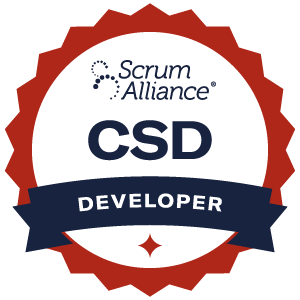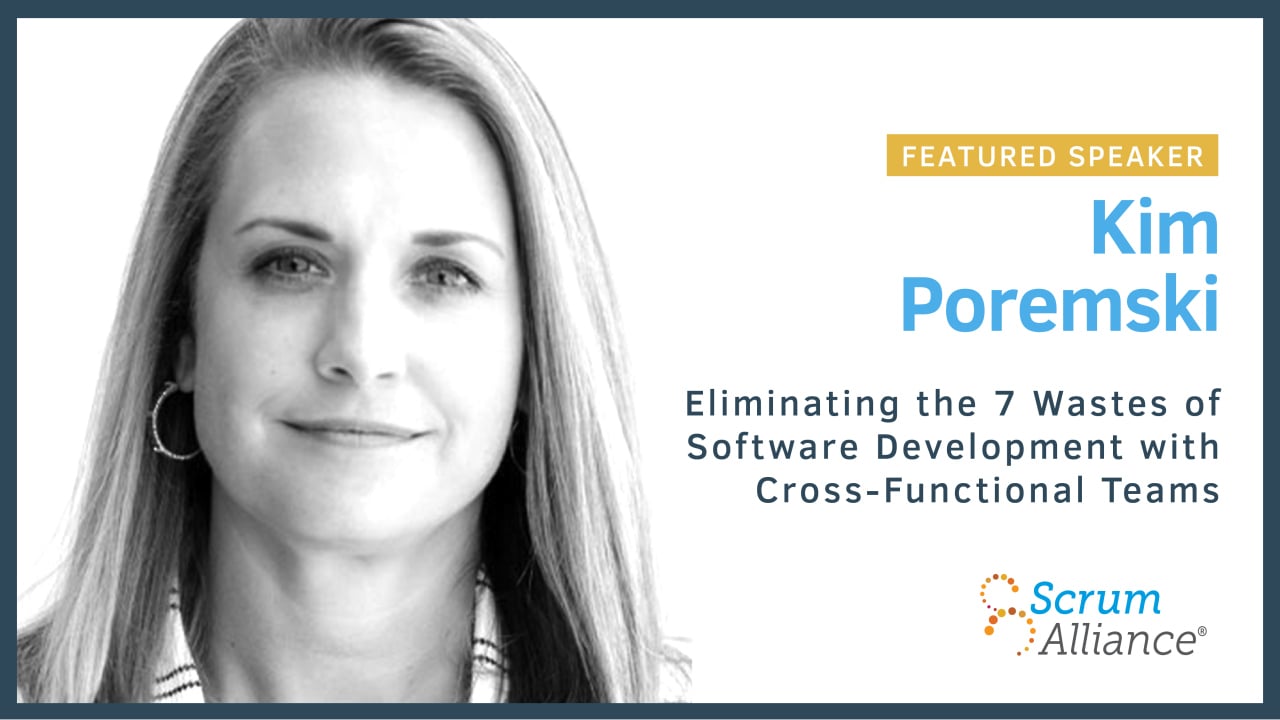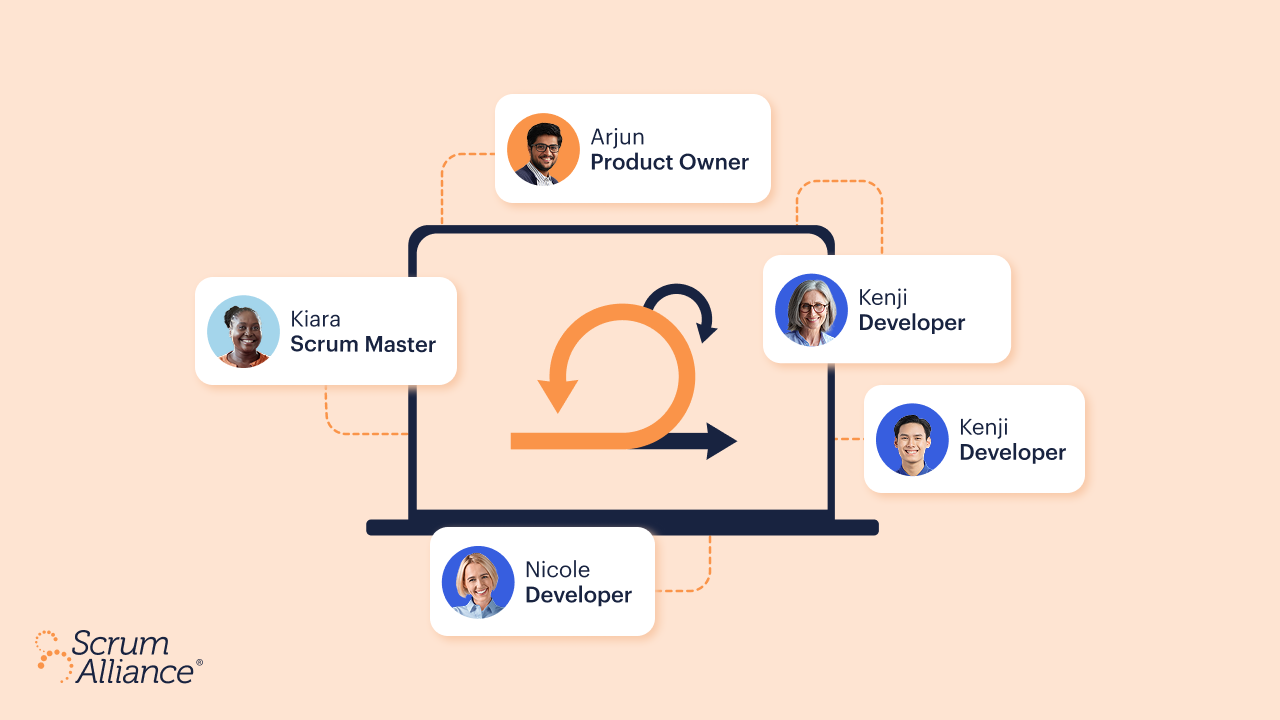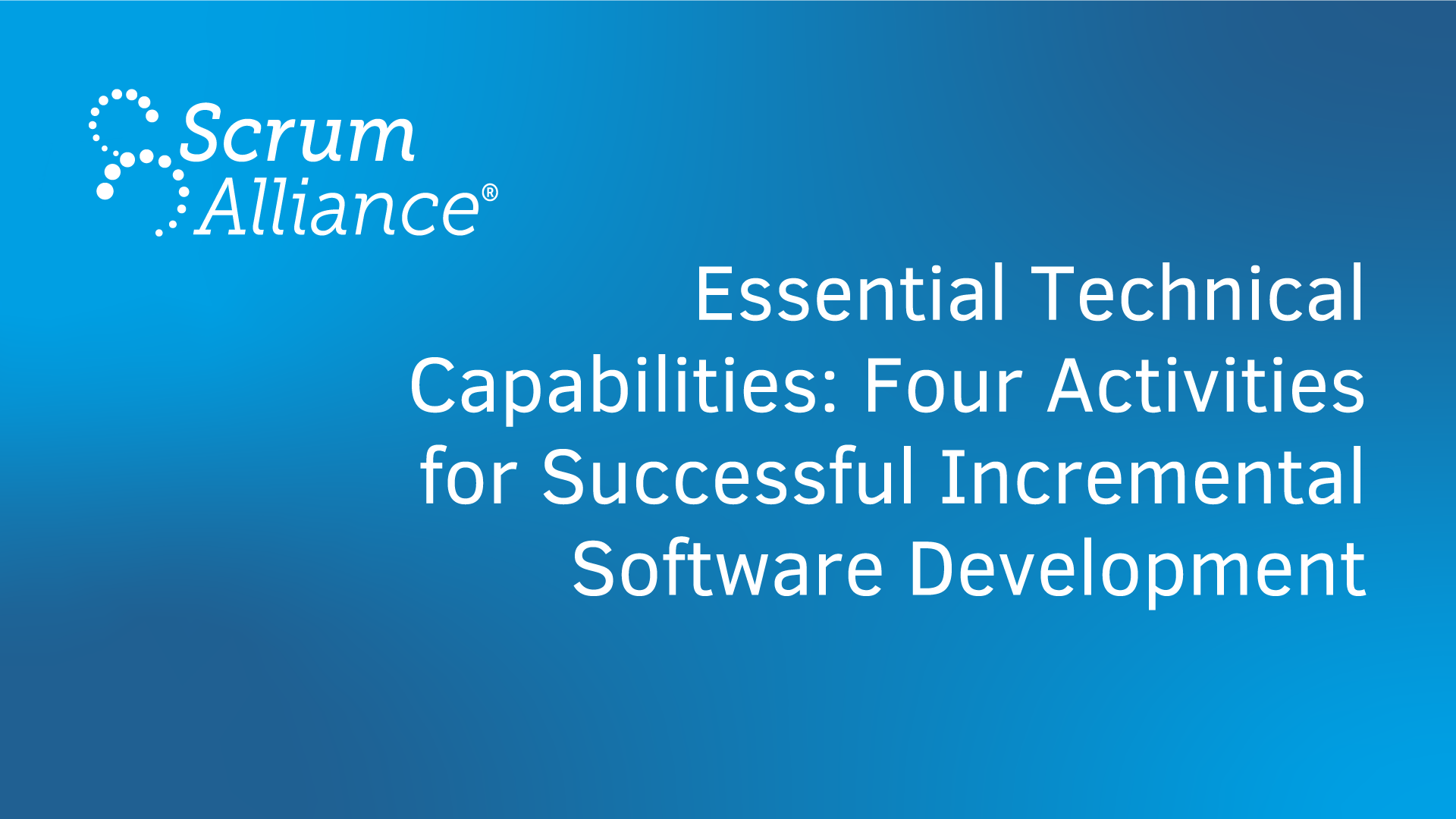Learn about purchasing for teams

Certified Scrum Developer® (CSD®)
Leverage the collaboration and incremental delivery of the scrum framework to deliver better products in less time. Stand out as someone who knows how to practically apply scrum when you become a Certified Scrum Developer (CSD).

Scrum Development
Certified Scrum Developer defined
The CSD is a certification from Scrum Alliance. Earning this certification means you have a working understanding of the scrum framework and agile principles. The CSD is also evidence of your engineering skills in an agile environment.

Course overview
The Certified Scrum Developer course is an immersive learning journey. Most of the CSD courses are tailored to software developers and engineers who want to increase their agile engineering skill set and their expertise in scrum.
You'll gain practical, hands-on skills that are crucial for successful product delivery in a real-world setting where conditions and requirements seem to constantly change.
As the foundational course in the developer track, CSD prepares you to pursue these advanced Scrum Alliance certifications:
While many product developers use scrum, not all of them are certified in this agile framework. By earning a globally recognized CSD, you'll differentiate yourself as someone who knows how to practically and flexibly apply scrum at any organization or for any client.
See the CSD Learning Objectives to find out what this course includes.

What is a developer in scrum?
On a scrum team, the developers are the people who create usable increments every sprint. Most of the Scrum Alliance CSD courses are designed for people creating increments of software; however, scrum has grown beyond its IT origins and today scrum team developers work in diverse job roles as marketers, HR representatives, finance professionals, educators, government workers, and many other jobs involving complex work.
If you are not a developer in an engineering or IT sense, you should still browse the CSD course listings. Some of these courses are designed for you! Click "More Details" to learn more about a specific class.


What you'll learn
In this course, you will be introduced to essential skills and concepts, including how to:
- Transform product backlog items into increments of value
- Use a sprint backlog to forecast a sustainable amount of work you can complete that will create the next increment of the product
- Carry out a daily scrum to synchronize your work with your teammates
- Use scrum events to improve team self-management and collaboration
- Apply architectural and design principles in an agile environment, emphasizing technical excellence
- Define and understand the principles of refactoring, Test-Driven Development (TDD), and Continuous Integration (CI), including their benefits and how they support agile practices
While many CSD courses are technical, some of the course listings from Scrum Alliance-approved trainers can be taken by anyone. Those courses focus on the scrum team member known as a "developer" and the skills they teach can be applied to any job in which you are making a product or service. Check the course search listings for the full description of individual CSD classes and to see what to expect.

Benefits of the CSD
In today's competitive job market, Certified Scrum Developer training sets you apart. Scrum is widely used in software development and engineering. Having a badge that shows your practical skills in this agile framework differentiates you from other job candidates.
Furthermore, the knowledge you gain in the course and as a Scrum Alliance member supports your ability to do your job well. You'll be prepared to collaborate effectively with your team, use scrum events to make decisions quickly and move work forward, and ultimately build a product that customers and stakeholders applaud.
The benefits of earning the CSD include:
- Demonstrate to employers and peers your understanding of core scrum knowledge
- Expand your career opportunities by staying relevant and marketable across all industry sectors by adopting agile practices
- Engage with a community of recognized scrum experts who are committed to continuous improvement
The live and interactive training means you'll be able to ask questions to the trainer in real time and learn from the experiences of your classmates. Once you complete the course requirements, you'll have an industry-recognized badge demonstrating your growing agile skill set.

Requirements
Earning the Certified Scrum Developer certification is a commitment to elevating your understanding and application of scrum. The process of earning the CSD ensures all candidates have not only learned but can also apply scrum in real-world scenarios.
Here’s what is required to attain the CSD certification:
- Complete at least 14 hours of formal training by a Scrum Alliance-approved CSD Trainer
- Demonstrate an understanding of scrum and agile practices through a CSD assessment, which could be an exam or an active classroom-based evaluation depending on the trainer's course design
- Upon course completion, accept your CSD license and add the certification to your Scrum Alliance profile
Note: The certification is valid for two years and renewable with a submission fee and by submitting the required number of Scrum Education Units (SEUs).

Certifications with substance
Choosing Scrum Alliance means you will earn a certification badge that is recognized by employers and recruiters globally.
Established in 2001, Scrum Alliance provides certifications with substance: Once you earn the badge, the renewal requirements include proof that you've continued to grow your knowledge—by reading books, watching webinars, attending events, etc.
Earn Scrum Education Units with every learning opportunity you complete. SEUs are required for certification renewal every two years. Instead of a one-and-done lifetime certification, you'll have a badge that proves to employers your commitment to continuously growing, evolving, and expanding what you know.
Testimonials from our members
Great instructor with lots of real-world experience and good at working with students of all levels.
A lot of practical tasks, hands-on exercises, managed to keep the attention of the whole group during three days. Learned a lot.

Register for CSD today!
Strengthen your technical skills in agile product development with the CSD course.
Relevant resources
Stay in the loop with email updates!
The CSD not only validates your understanding of agile and scrum but also enhances your marketability and opens up new career opportunities. In fact, 55% of employers said they will pay higher salaries for someone with a relevant certification, according to the "Skills in the New World of Work" report.
While you can take both certification courses, your career aspirations may mean either the CSD or Certified ScrumMaster is a better fit for you. If you're a developer or engineer looking to hone your technical skills within scrum, the CSD is tailored to you. Conversely, if your goal is to focus on the people in a scrum team and help them continuously improve, then the CSM might be the more suitable path. Both certifications feature practical agile skills and knowledge you can apply right away.
Review the CSD Learning Objectives for a comprehensive look at what you'll learn. This course also covers the Scrum Foundations® Learning Objectives.







